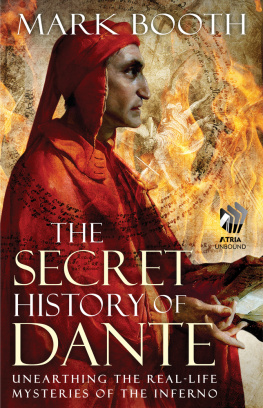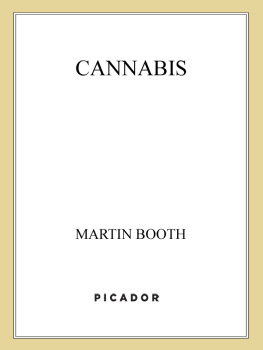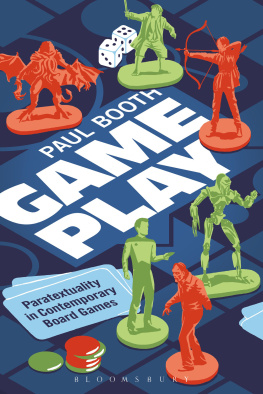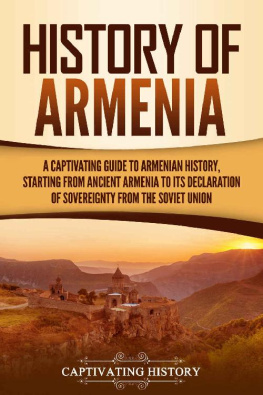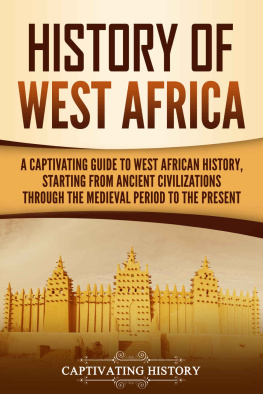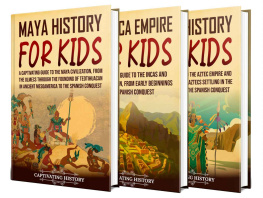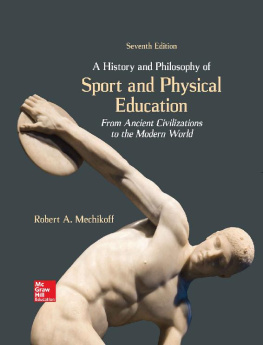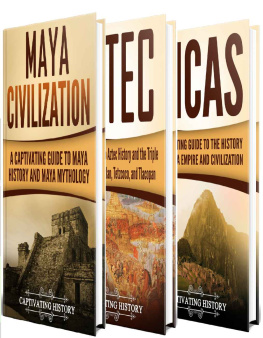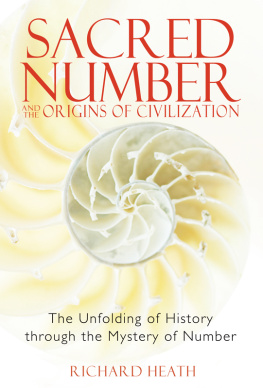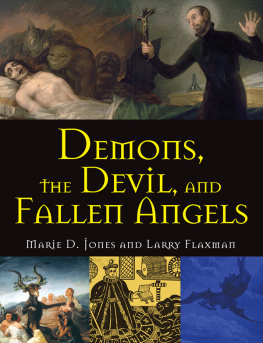Thank you for downloading this Atria Books eBook.
Join our mailing list and get updates on new releases, deals, bonus content and other great books from Atria Books and Simon & Schuster.
C LICK H ERE T O S IGN U P
or visit us online to sign up at
eBookNews.SimonandSchuster.com
We hope you enjoyed reading this Atria Books eBook.
Join our mailing list and get updates on new releases, deals, bonus content and other great books from Atria Books and Simon & Schuster.
C LICK H ERE T O S IGN U P
or visit us online to sign up at
eBookNews.SimonandSchuster.com

Frontispiece to John Dees The Arte of Navigation

Contents
To Lorna Byrne
Preface
The stories retold in this book, taken together and told in sequence, represent a sort of folk history of the world.
But more than that, they work on many different levels. They are part of a mystical tradition.
Many describe dramatic events not in the physical world but in the realms of gods, angels and other spiritual beings. Many follow people who entertain gods and angels unawares, or travelers between the worlds who slip through into alternative realities. These stories may show what it feels like when the spiritual realm intrudes on the everyday, when spiritual beings break through, when we suddenly feel a presence, or when we, unwittingly perhaps, step through into a world that is differentupside down and inside out.
Many of these stories have long loomed large in the collective memory but can still quicken the blood today, because they represent great turning points in spiritual evolutionor, to put it in modern terms, turning points in the evolution of consciousness.
According to mystical tradition, this evolution is the unfolding of a divine plan. Great spiritual beings lead us era by era, stage by stage, drawing us out and helping us to evolve. When we fight, when we love, when we are tested to our limits and find a kind of victory in a kind of defeat, we are following in the footsteps of gods and angels, following patterns of meaning and behavior that they have laid down for us.
But, as with all things mystical, this history is not simply linear. Because time does not operate in the same way in the spiritual worlds, there may be historical events which are in a sense still going on. Events in world history may also be recapitulated in all our individual lives, so that we must each endure an exile in the desert and go on a quest for the Holy Grail. Some events may have been reenacted as part of religious ceremony. For example, the story that has come down to us as Cinderella originated as the sacred drama of Isis, enacted in the temples of ancient Egypt. Some stories, including those of rebirth, may have been part of initiation rituals, where someone was born again into a higher state of being or consciousness. And some of these rituals are still being reenacted in secret today.
In the form that they have come down to us, these stories are meant to be wise. They are teaching stories, meant to work on us at what we today might call a subconscious level, but they are also intended to help us become more conscious of the shapes and mystical patterns of our lives. I will argue that this is one of the reasons why stories are important. Stories, I want to suggest, tend to show the immanence of the divine in human experience.
That is why great events in the unfolding of the spiritual history of the world can be seen in stories which might seem entirely fictionalin fairy stories, tales of the Arabian nights and folk tales of encounters with elemental beings and the spirits of the dead.
No great story is mere fantasyand neither is fantasy.
* * *
These stories are arranged chronologically. In the early chapters I retell the great stories of human beginnings in order to show how epoch after epoch, stage by stage, the fundamentals of the human condition were put together.
Divine intervention and intelligent interaction with spiritual beings, spiritual guidance, spiritual testingall of this is unquestioned in these early stories and writ large there. The tellers of these mythic tales were not interested in the material world in the way we have become interested in it since the scientific revolution. For them, the great miracle, the great wonder, was not so much the beauty and complexity of the outer world as the beauty and complexity of the inner world of subjective experience. They explained how we came to experience life as we do.
So it was because of the passion of Venus for Adonis that desire can sometimes be destructive. It was because Loki, the Norse Lucifer, stole a magic ring forged by the dwarves that even the best of us can become acquisitive and narrowly selfish. Because of Odin and Mercury, we are intellectually curious. Because of the Sun god, we are given the assurance that if we act wholeheartedly and risk everything, we can ultimately defeat the forces of darkness.
Later in the book we will see that because of Moses a passion for justice runs through us like a mighty river. Then because of the Buddha, we are capable of compassion for all living beings, and because of the great mystics of Arabia, we have learned the delights of falling in love.
The story of the medieval founders of hatha yoga is tied up with the story of Christian Rosencreutz and the introduction of teaching regarding the chakras into the stream of Western mystical thought. We shall see that one of the two great scientists of the spiritual in modern times, Carl Gustav Jung, was advised by a disembodied guide, just as Socrates was guided by his daemon. The other great scientist of the spiritual in modern times, Rudolf Steiner, gave a detailed account of the journey of the spirit after death.
Some themes will recur, and so too will some characters, including the sometimes dangerous and disturbing figure of the Green One, who reappears in different forms and will appear finally to announce the end of the world as we know it.
In the case of some chapters I have unraveled commentaries out of the stories in order to make explicit the turning points in history that they dramatize. In other cases I have been shy of interposing myself.
I take it as axiomatic that, as Ibn Arabi, a Sufi mystic and guiding light in this book, said, No single religion can fully express the Reality of God. Throughout I look at the work and teachings of schools including the Kabbalistic, Sufi, Hermetic, Rosicrucian, Masonic, Theosophical and Anthroposophical, as well as the work of individual mystics such as Plato, Plotinus, Paracelsus, Christian Rosencreutz, Jacob Boehme, Rudolf Steiner and Lorna Byrne, asking if their restatements of the wisdom of ancient times can help us find a language to talk about them in modern terms.
I look, too, at the work of the great storytellers of modern times, writers who ask if there is a mystical dimension to our lives, if the world is shot through with meanings we did not put there, if we really are engaged in interaction with unembodied intelligence. In the age of scientific materialism this is perhaps the greatest philosophical question, and novelists, from Dostoyevsky and George Eliot to David Foster Wallace, have looked for mysterious patterns, mystic traces and otherworldly influences not in the epic lives of heroes, but in ordinary, everyday lives.
Next page
